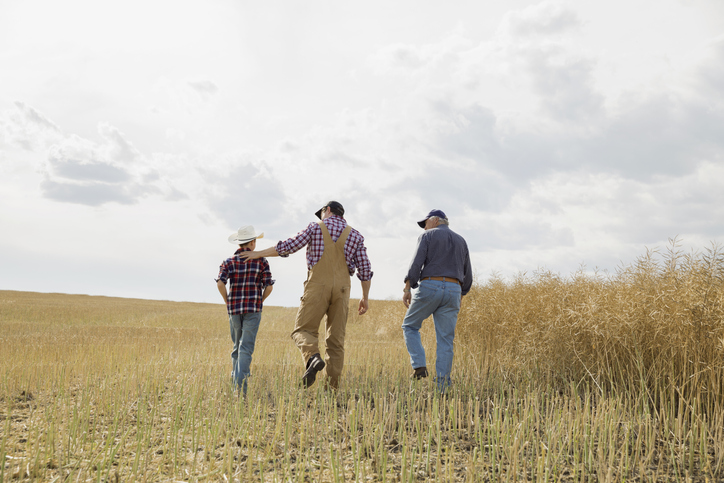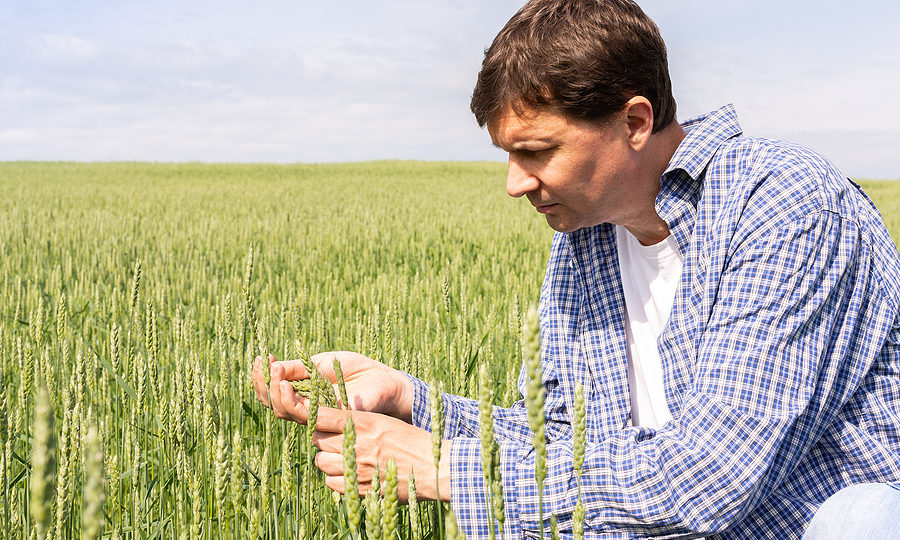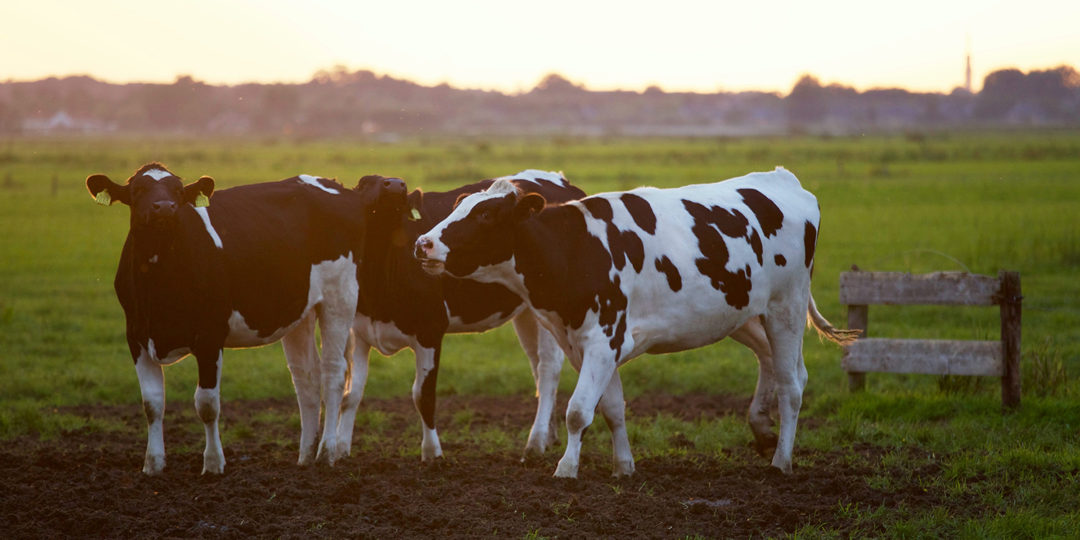-
Ensuring the Your Farm’s Future with Farm Succession Planning
- Jun 14, 2023
- By Genske, Mulder & Company
- In Uncategorized
- Comments Off on Ensuring the Your Farm’s Future with Farm Succession Planning
Farm succession planning is a critical process farmers engage in to ensure the smooth transition of their agricultural business to the next generation. By creating a well-thought-out plan, farmers can secure the legacy of their family farm and ensure its continued success for years to come.
Steps for a Smooth Farm Succession Planning
To ensure a smooth transition of the farm to the next generation, farmers should consider the following key steps:
1. Start Early: Begin the succession planning process well in advance to allow sufficient time for discussions, decision-making, and necessary adjustments. Starting early enables families to address potential issues or concerns during planning.
2. Identify Goals and Objectives: Clearly define the goals and objectives of the current farm owner and the next generation. This includes discussing aspirations, visions, and expectations for the farm’s future. Understanding each other’s goals and objectives will help align everyone’s interests and foster cooperation.
3. Develop a Succession Plan: Create a comprehensive succession plan that outlines the transfer of ownership and management responsibilities. This plan should account for legal and financial considerations and the dynamics within the family. Involving all relevant family members in the plan is essential to ensure everyone’s perspectives are considered.
4. Seek Professional Advice: Engage with legal and financial experts in farm succession planning. They can guide you on tax implications, estate planning, and asset transfers to ensure a smooth and efficient transition. Professional advice is crucial to navigating the complex legal and financial aspects of farm succession planning.
5. Educate and Involve the Next Generation: Educate the next generation about the operation and management of the farm. Involve them in decision-making processes, provide training, and gradually hand over responsibilities to prepare them for their future role. This hands-on experience will equip the next generation with the necessary skills and knowledge to run the farm successfully.
6. Communicate Effectively: Foster open and transparent communication within the family. Regularly discuss the succession plan, address concerns, and actively listen to the perspectives and ideas of all family members involved. Effective communication is essential to understand and address everyone’s needs and expectations.
7. Review and Update the Plan: Regularly review and update the succession plan to adapt to changing circumstances, such as market conditions, family dynamics, and legal requirements. A dynamic plan ensures that it remains aligned with the family’s goals and helps navigate any unexpected challenges that may arise.
Legal and Financial Considerations in Farm Succession Planning
Farmers should keep several legal and financial considerations in mind during the succession planning process, including:
1. Estate Planning: Work with an attorney to draft a comprehensive estate plan that covers wills, trusts, power of attorney, and healthcare directives. This ensures that the farm assets are distributed according to the owner’s wishes and minimizes potential legal disputes.
2. Tax Implications: Consult with a tax professional to understand the tax implications of transferring farm assets. Take advantage of available tax breaks and exemptions to minimize the tax burden on the next generation. Proper tax planning can maximize the financial resources available for a successful transition.
3. Business Structures and Agreements: Consider legal structures like partnerships, limited liability companies (LLCs), or corporations for the farm business. Establish clear agreements on ownership shares, management roles, and decision-making processes. These structures and arrangements provide a solid foundation for the farm’s future operations.
4. Succession Financing: Explore financing options to provide liquidity for the retiring farmer and secure funding for the incoming generation. This may include loans, grants, or equity arrangements. Proper financial planning ensures the necessary resources are available to facilitate a smooth transition.
5. Insurance Coverage: Review and update insurance policies to adequately cover the farm assets, liabilities, and potential risks during the transition period. Insurance coverage is crucial in safeguarding the farm’s financial stability and protecting against unforeseen events.
Conclusion
Farm succession planning is a crucial process for ensuring the future success of agricultural businesses and securing the family farm’s legacy. By following the key steps, considering legal and financial aspects, and fostering effective communication and collaboration within the family, farmers can increase the likelihood of a successful transition. Embrace the opportunity to pass down the family farm to the next generation, ensuring its continued success for years. Contact us today if you have any questions related to your farm succession planning.
-
4 Questions to Ask When Hiring a Farm Accountant
- Jun 14, 2023
- By Genske, Mulder & Company
- In Uncategorized
- Comments Off on 4 Questions to Ask When Hiring a Farm Accountant
Hiring a farm accountant is crucial in running a profitable farming operation. As a farmer, partnering with an experienced accountant can help you navigate the unique financial and accounting-related challenges that come with this industry. With so many questions to ask a farm accountant, it can take time to figure out where to start. Here are four questions to ask your farm accountant to ensure your financial management is in good hands.
1. Are you knowledgeable about the farming industry?
When hiring an accountant for your farming operations, the accountant’s industry knowledge should be a top consideration. You want an accountant with deep farming industry knowledge who understands your business’s unique financial and accounting needs. An accountant who understands the farming industry can help you identify opportunities such as tax credits and avoid financial pitfalls.
2. What business structure should I choose for my farming operation?
Choosing the right business structure for your farming operation is essential because it can impact how you run your business and the overall tax landscape. Your farm accountant can help you select the best business structure for your farm based on your goals, business plan, and vision. You have many options, including sole proprietorship, limited liability company (LLC), partnership, corporation, and cooperative; discussing this with your accountant is crucial.
3. Can you help me monitor and regulate my cash flow?
Effective cash flow management and planning are vital for a successful farming operation. An accountant can help you monitor and regulate your cash flow by assessing your finances, establishing a budget, projecting cash inflows and outflows, and providing advice to help you make the right decisions about your expenses. With your accountant’s help, you can identify opportunities to optimize your cash flow and avoid cash flow crises.
4. Can you help me decide whether to sell or trade in farming equipment?
Managing and disposing of farming equipment can be challenging, and making the right decisions to minimize financial losses is essential. A farm accountant can help you determine if selling or trading equipment is in your best financial interests. The accountant can also help you maximize tax write-offs of equipment by applying strategies such as Section 179 or Bonus Depreciation.
Choosing the Best Farm Accountant
Partnering with an experienced farm accountant can help you make more informed financial decisions and maximize your farm’s profitability. Don’t be afraid to ask questions. In addition to the four questions listed above, there are many other topics to cover, such as succession planning, tax regulations, and cybersecurity.
With over 40 years of experience, Genske Mulder is the leading firm for farm accountants, offering unparalleled expertise and industry-specific knowledge for dairies and agribusinesses. Contact us today to learn how we can help you Grow and Thrive.
-
Guide to Understanding Farm Depreciation for Your Dairy Farm
- Jun 13, 2023
- By Genske, Mulder & Company
- In Uncategorized
- Comments Off on Guide to Understanding Farm Depreciation for Your Dairy Farm
Farm depreciation is a critical element of farm accounting—a deduction that favorably minimizes taxable income for farmers. According to the IRS, farm depreciation is one of the most significant tax deductions farmers qualify for. This makes it essential for farmers to understand and know how it’s appropriately navigated.
Assets that we buy and intend to use for many years in the future will generally experience a reduction in value, known as depreciation, over time. This is especially true for mechanical assets and farm equipment, such as trucks, tractors, combine harvesters, etc.
Farmers often need to understand this accounting aspect, and confusion about how it works is common. The tax code offers three methods of deducting farm purchases, depreciation, Section 179, and bonus depreciation. Let’s break it down.
Farm Depreciation: Spreading the Cost Over Time
Depreciation allows you to deduct the cost of your assets over their useful lives. It recognizes wear and tear, obsolescence, and deterioration that assets undergo as you use them in farming operations. By spreading the cost of assets over time, depreciation offers a more accurate representation of their value, helping you allocate expenses effectively.
The straight-line method evenly distributes an asset’s cost over its estimated useful life. For instance, if, after an assessment, a certified accountant determines a piece of machinery will be productive for ten years and cost $100,000, the annual depreciation expense would be $10,000.
Section 179: Immediate Expense Deduction
Section 179 lets you deduct the total cost of qualifying assets in the year you placed them into service. This provision benefits smaller farms that make significant purchases in a given tax year. You can minimize your taxable income for that year by deducting the entire asset cost upfront.
The government sets limits to the amount you can deduct. If the limit is $500,000, a farmer who purchases a tractor for $200,000 can deduct the entire amount under Section 179 and reduce their taxable income by $200,000.
In 2023, you can fully deduct up to $1.16 million if the assets you bought cost more than $2.89 million. If you exceed this figure, prepare to reduce your deduction dollar-for-dollar.
The maximum Section 179 deduction typically equals your net farm income and wages. You can carry the excess amount to the next year and deduct it against your farm income that year. Remember that your farm buildings don’t qualify for Section 179.
Bonus Depreciation: Accelerated Deductions
Bonus depreciation allows you to deduct a percentage of the cost of qualifying assets in addition to regular depreciation. The bonus depreciation rate can vary, but it is often higher in the early years of an asset’s life. Bonus depreciation is ideal for new acquisitions and offers significant tax benefits.
Remember that bonus depreciation can result in a net operating loss, which you can carry forward or back two years. Besides, you can select from bonus depreciation on a class-life basis.
It is always helpful to consult with tax professionals to understand the specific rules and ensure compliance with the tax code.
Choosing the Right Method for Your Farm
Consider your circumstances and goals before selecting an ideal method for deducting farm purchases. Smaller farms with limited cash flow may benefit more from Section 179, as it lets you immediately minus the total cost of qualifying assets. This approach offers immediate tax relief and helps with cash flow management.
On the other hand, larger farms with higher taxable incomes may find regular depreciation more beneficial. Spreading the assets’ costs over their useful lives provides a more accurate reflection of their value and help with long-term financial planning.
Farmers also need to consider the assets they are purchasing. Certain assets like equipment and machinery may be eligible for bonus depreciation, providing additional tax savings.
Consulting with a Tax Professional
Given the complexity of farm depreciation, consulting with a tax professional specializing in agricultural taxation is highly recommended. These professionals have the expertise and knowledge to guide you in selecting the most advantageous depreciation method for your specific circumstances.
Contact Genske, Mulder & Company, LLP to get the services of a professional partner and CPA who’ll help you navigate the ever-changing tax laws and regulations that may impact depreciation deductions.
-
Understanding the Significance of Setting Up a Farm Trust
- Jun 13, 2023
- By Genske, Mulder & Company
- In Uncategorized
- Comments Off on Understanding the Significance of Setting Up a Farm Trust
The farming landscape undergoes constant change, with challenges arising from various facets such as market dynamics, technological advancements, and shifting property laws. An increasing concern for farmers is the transition of their farms to the next generation while preserving the farm’s value and integrity. Here’s where the concept of farm trust steps in.
Farm trusts, acting as legal arrangements allowing for the hold of assets by one party to benefit another, have emerged as an effective tool in the arsenal of farm succession planning. Informing oneself about setting up a farm trust can secure the future of the farm and family enterprise.
Safeguarding Assets and Ensuring Continuity with a Farm Trust
One of the most important aspects of farm trusts is their capability to protect assets. In the event of legal conflicts or debts, assets kept in a trust can be safeguarded from claims. Trusts can be set up to allow the farm operations to continue unabated even if the owner passes away, significantly reducing the risk of sudden disruptions in a farm’s income stream.
Navigating Family Dynamics and Clear Succession
Farm trusts also provide a way to address potentially complicated family dynamics. Farms often hold not just economic value but emotional value too. Creating a farm trust helps lay the foundation for a clear farm succession plan, managing the transfer of assets to the younger generations, and preventing potential family disputes.
Customization and Flexibility
One of the most enticing aspects of arranging a farm trust is its flexibility. Every trust can be tailored according to the individual needs of a specific farm and family. Whether your concern lies with minimizing estate taxes, ensuring the care of a family member, or preserving land for future generations, structuring a farm trust can prove significantly helpful.
Setting up a farm trust is a complex process. It requires careful consideration of various factors, like the type of trust that best suits your purpose, the specifics of your farm, and your plans. Moreover, it also calls for professional guidance.
Embracing Professional Guidance
Farm succession planning can be emotionally challenging and technically complex. Therefore, partaking advice from professionals such as attorneys or financial advisors familiar with the nuances of agricultural business is crucial.
Establishing a farm trust can provide many benefits for those involved in the agricultural sector. From protecting assets to managing complicated family dynamics, ensuring business continuity, to preserving the land for future generations, a farm trust is a valuable tool in maintaining the longevity of your farm’s success. A well-set farm trust assures your farm continues to thrive and grow, marking your legacy for future generations. Contact us if you have additional questions.
Categories
Categories
- Uncategorized (24)
Iframe Video
Twitter Feed
- Our Twitter feed is currently unavailable but you can visit our official twitter page @ThemeForest.




